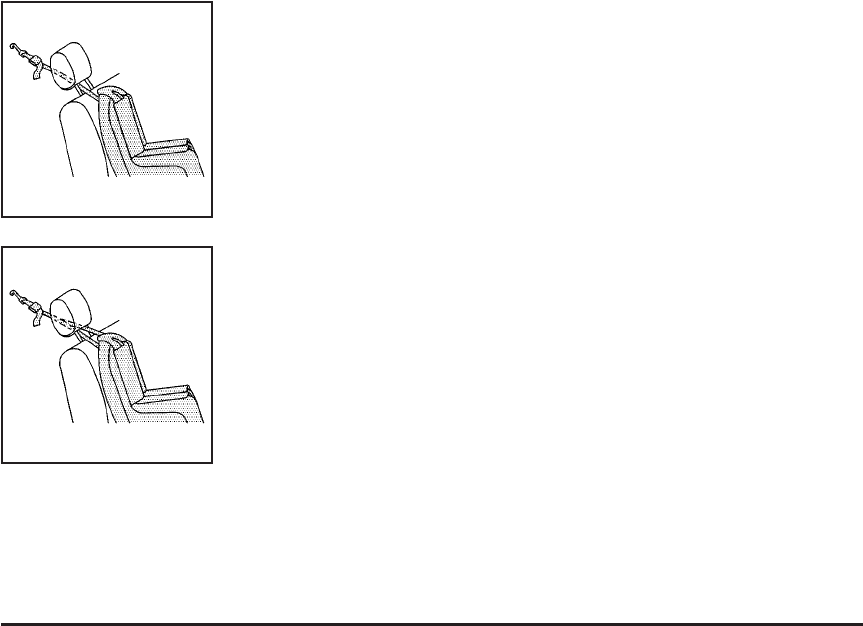
If the position you are using
has an adjustable headrest
or head restraint and you
are using a single tether,
route the tether under the
headrest or head restraint
and in between the
headrest or head restraint
posts. See Head Restraints
on page 1-8.
If the position you are using
has an adjustable headrest
or head restraint and you
are using a dual tether
route the tether under the
headrest or head restraint
and in between the
headrest or head restraint
posts. See Head Restraints
on page 1-8.
3. Push and pull the child restraint in different
directions to be sure it is secure.
Securing a Child Restraint in a
Rear Seat Position
When securing a child restraint in a rear seating position,
study the instructions that came with the child restraint to
make sure it is compatible with this vehicle.
If the child restraint has the LATCH system, see Lower
Anchors and Tethers for Children (LATCH) on
page 1-42 for how and where to install the child restraint
using LATCH. If a child restraint is secured in the
vehicle using a safety belt and it uses a top tether, see
Lower Anchors and Tethers for Children (LATCH)
on page 1-42 for top tether anchor locations.
Do not secure a child seat in a position without a top
tether anchor if a national or local law requires that the
top tether be anchored, or if the instructions that
come with the child restraint say that the top strap must
be anchored.
In Canada, the law requires that forward-facing child
restraints have a top tether, and that the tether be
attached.
If the child restraint does not have the LATCH system,
you will be using the safety belt to secure the child
restraint in this position. Be sure to follow the instructions
that came with the child restraint. Secure the child in the
child restraint when and as the instructions say.
1-49


















